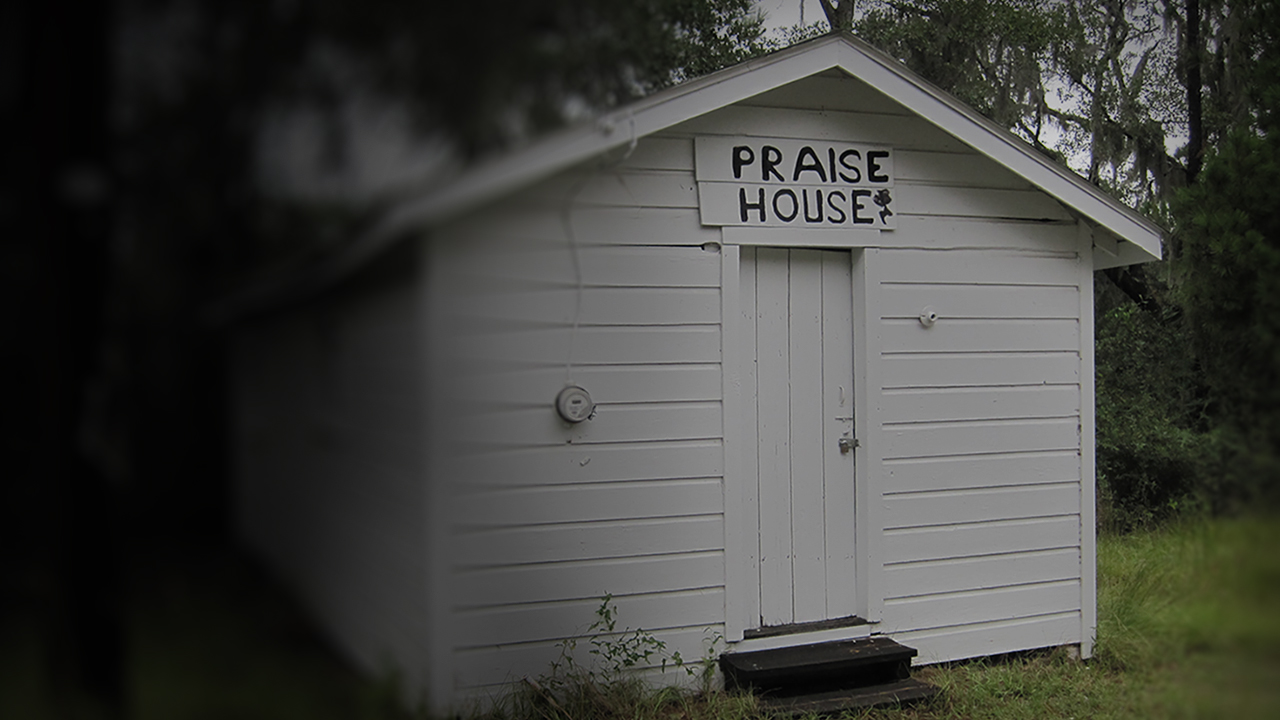Before emancipation, enslaved people in the South Carolina Lowcountry, known as Gullahs, met and worshipped in praise houses. These were small, simple structures where they could “hold prays” on Sundays and weekday evenings, when they could not walk or ride to the main church on the plantation.
For Gullahs the Praise House was a plantation community hall where they related secular experiences, directed their religious life, openly expressed among each other their innermost frustrations, longings and expectations.
Margaret Washington Creel, “A Peculiar People” Slave Religion and Community-Culture Among the Gullahs

After emancipation and into the twentieth century, these small chapels remained important gathering places.
In this clip from the film “To Live as Free Men,” produced on St. Helena Island, South Carolina in 1942, worshippers attend a service in an old praise house, beckoned by the ringing of a bell.
In this excerpt from “To Live as Free Men" the praise house service is over and worshippers are engaged in a “ring shout.”
Afro-Christian worship often included these circular dances, which have their origins in West African burial practices. Although the worship service recorded in this film took place in 1942, it retains characteristics of the African ceremony.
Like these dancers, Bakongo and other West African mourners moved in a counterclockwise direction, following the direction of the sun, from east to west.
Descendants of enslaved Africans who live along the southeastern coast of the United States from southern North Carolina to northern Florida are still known as the Gullah or Geechee people. Gullah also refers to their creolized language.
It was through Gullah that Africans from various backgrounds not only communicated with and entertained one another but also linked themselves into a community, gave shape to a common culture, and handed down that culture to their posterity.
Down by the Riverside: A South Carolina Slave Community
A praise house worshipper prays in the Gullah language. This is a rough translation of her prayer to standard English:
Dear Master Jesus, we all beg you, come make us a call this day. We ain’t nothing but poor Ethiopian women. People don’t think much about us….those great high people for coming to our church. But though you are the one great Master, greater even than Master Lincoln, you ain’t ashamed to care for us African people.
To return to the trail click NEXT STOP
To return to the Friendfield Church click
